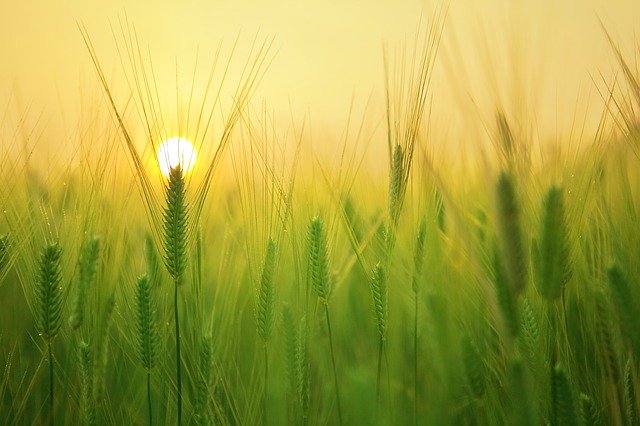IoT in agriculture farming techniques is widely accepted worldwide because of the various benefits these techniques offer over conventional farming. The worldwide issue of food safety and security is being addressed with these techniques. The fruits and vegetables produced through these techniques are monitored and developed in a controlled manner to achieve an optimal growing environment. Global food production is increasing with IoT in agriculture production, which is important to feed the growing population as it is expected to reach XX billion by 2050.
The global IoT in agriculture market research study offers a broad perspective on the analysis of the industry. The research is based on extensive primary interviews (in-house experts, industry leaders, and market players) and secondary research (a host of paid and unpaid databases), along with the analytical tools that have been used to build the forecast and the predictive models.
Internet of Things (IoT) is a term that refers to the connection of devices to the internet that allows the generation and transfer of massive amounts of data. IoT helps to enable devices that gather data such as mobile phones, sensors, drones, satellites, and others to transmit the data captured over the internet. Significantly, IoT allows to capture data from various sources without being there in person; hence, due to such ability, IoT is witnessing a surge across multiple industries.
In addition to this, IoT helps in enormous amounts of big data storing, processing, and analyzing data to arrive at potential insights. It enables physical objects to be sensed and controlled remotely, allowing for more direct integration between the physical world and computer-based systems. Machine learning allows advancing solutions on an ongoing basis, developing algorithms that understand users better. Each technology, namely IoT, AI, big data, or machine learning, is extremely to bring about a change in the global ecosystem, and if they are combined, they become even more powerful and revolutionary. It creates a virtuous cycle that can generate even more precise and tailored products, pushing the boundaries, which helps in digitalization for agriculture.
For instance, IoT-enabled devices are entrenched with sensors to connect and interact with each other by using the internet. In the agricultural sector, various devices can be remotely monitored and controlled in real time, including anything from sheds, tractors, pumps, weather stations, and computers. Also, data from devices can help farmers analyze their farms and help in decision making, assisting them in making the farm smarter and safer and adapting more quickly to changing conditions.
Data-driven agriculture benefits both producers and products. Farmers can recognize explicit dependencies between the conditions and the quality of the crops with the help of soil and crop sensors, aerial drone monitoring, and farm mapping. Using connected systems, farmers can recreate the best conditions and increase the nutritional value of products. Such is the ability of IoT to monitor farm conditions and infrastructure remotely can free up time, labor, and capital to invest, and others, allowing farmers to focus on other things.
Furthermore, the IoT in agriculture can be classified into various sections, including signal conditioning, processing, sensors, security, connectivity, power management, and positioning. The processor can control other IoT devices remotely with the help of connectivity. Several sensors can be used to detect the peripheral environment and help in focusing on objects. Many agriculture use cases have been realized through the IoT system, such as precision crop farming, crop management, farming process automation (like fertilization, irrigation, or pest management), and livestock monitoring, among others.
The agricultural industry is one of the world’s fewer known industries, which are digitized. Still, with the recent advancements in the industry, a transformation is expected to be witnessed as more and more companies are enhancing their product portfolio by introducing data acquisition, agricultural robotics, and analytic services.
Farming operations are becoming problematic as they evolve with the developments of technology. Precision agriculture, using advanced technology and IoT to improve crop production and practices, is seeing more efficient and educated farming procedures brought to life. For example, AI is set to reduce this high level of repetitive and physical work by developing different components to help make farms smarter and more efficient.
About BIS Research:
BIS Research is a global B2B market intelligence and advisory firm focusing on deep technology and related emerging trends, which can disrupt the market dynamics in the near future. We publish more than 200 market intelligence studies annually that focus on several deep technology verticals.
Our strategic market analysis emphasizes on market estimations, technology analysis, emerging high-growth applications, deeply segmented granular country-level market data, and other important market parameters useful in the strategic decision-making for senior management.
BIS Research offers syndicate as well as custom studies and expert consultations to firms, providing them specific and actionable insights on novel technology markets, business models, and competitive landscape.
Contact:
Bhavya Banga
Email: media@bisresearch.com
BIS Research Inc.
39111 PASEO PADRE PKWY STE 313,
FREMONT CA 94538-1686
Visit our Blog @ https://blog.bisresearch.com/
Connect with us on LinkedIn @ https://www.linkedin.com/company/bis-research
Connect with us on Twitter@ https://twitter.com/BISResearch

